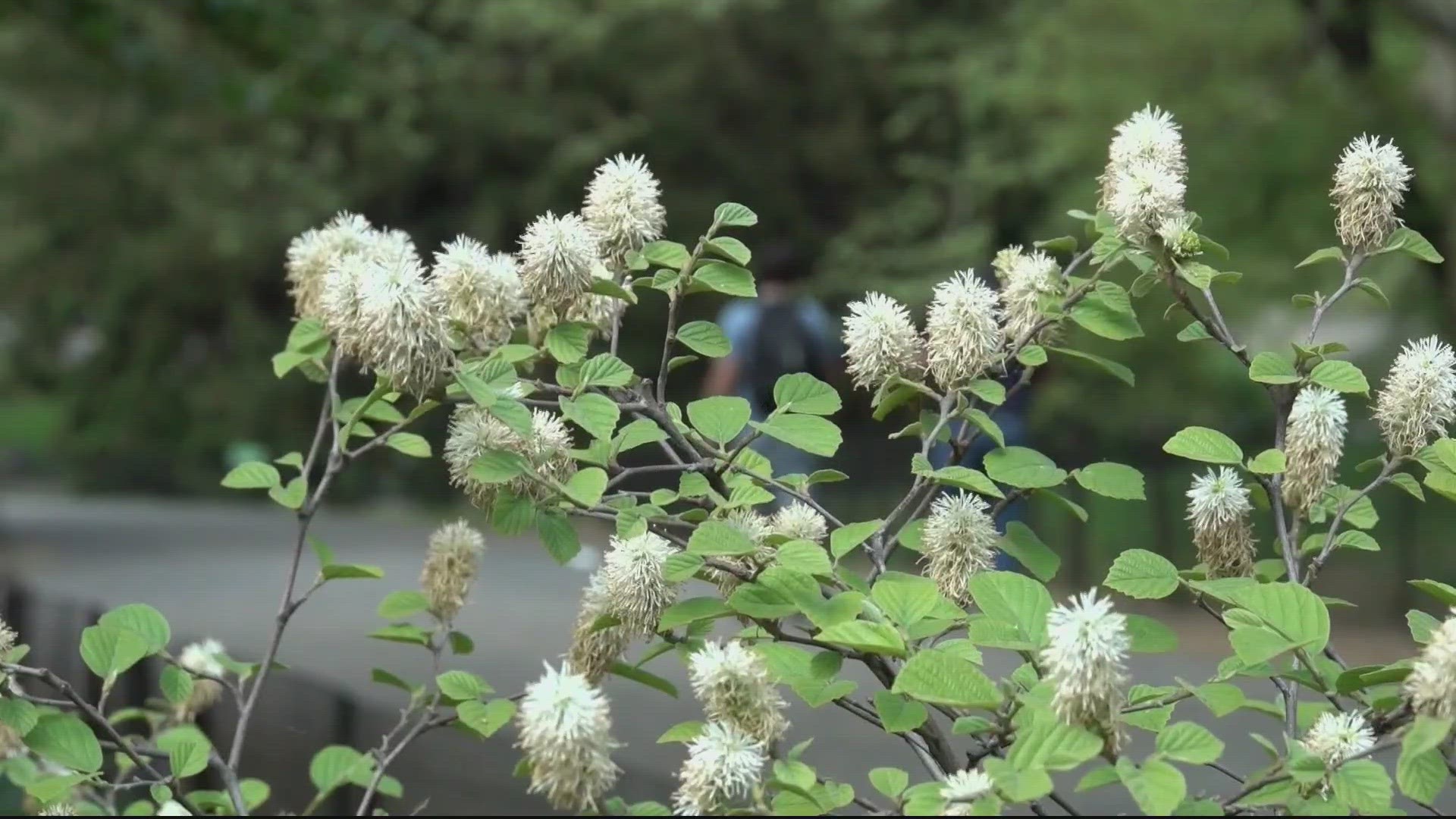WASHINGTON — Residents of the DMV can expect to the recent trend of above-average temperatures to continue according to a report issued by the National Oceanic and Atmospheric Administration (NOAA).
NOAA issued its spring weather outlook for the United States on March 16.
March 20 was the spring equinox and the official start of astronomical spring. That’s different than “meteorological spring,” which runs from March 1 to May 31. Astronomical spring runs from the spring equinox to the summer solstice – June 21.
NOAA’s forecast calls for a continuation of above-average temperatures in the mid-Atlantic Region. The immediate DC Metro area has a greater than 50% chance of above-average temperatures over the next three months.
That would follow the third warmest winter that just wrapped up in the nation’s capital. January and February featured a combined total of only seven colder than average days, while March has already had eight such days. However, this month has remained slightly warmer than average through March 21.
The National Park Service also tracked the warmer than average start to 2023 that accelerated the development of the cherry blossoms along the Tidal Basin. Peak bloom, when at least 70% of the blossoms are in bloom, was declared on Thursday. That’s roughly two weeks ahead of the historic average of April 4.
The spring outlook also calls for “…above-average precipitation this spring across the Great Lakes, Ohio Valley, and into parts of the mid-Atlantic and Northeast.” That should help area gardeners to build a rainfall surplus heading into the hotter summer months. A wetter than average spring would also be good news since Washington, D.C. has had six drier than average months dating back to last August.
A warmer and wetter than average spring doesn’t mean there wouldn’t be drier and/or cooler than average stretches, but they would be few and far between.
Allergy sufferers in the nation’s capital should expect to have an increase in symptoms as warmer and wetter than average weather is conducive to higher pollen counts. However, periodic rainfall also helps keep the daily pollen count in check. If this spring proves to be wetter than average, as five of the last six have been in Washington, D.C., then that would be a positive development.
The Washington Nationals kick off their 2023 season on March 30, with a home game against the Atlanta Braves at 1:05 p.m. The average high/low temperatures in the nation’s capital on March 30 are 62 and 43 degrees. Baseball fans would be thrilled to have sunny skies and average temperatures on Opening Day.

